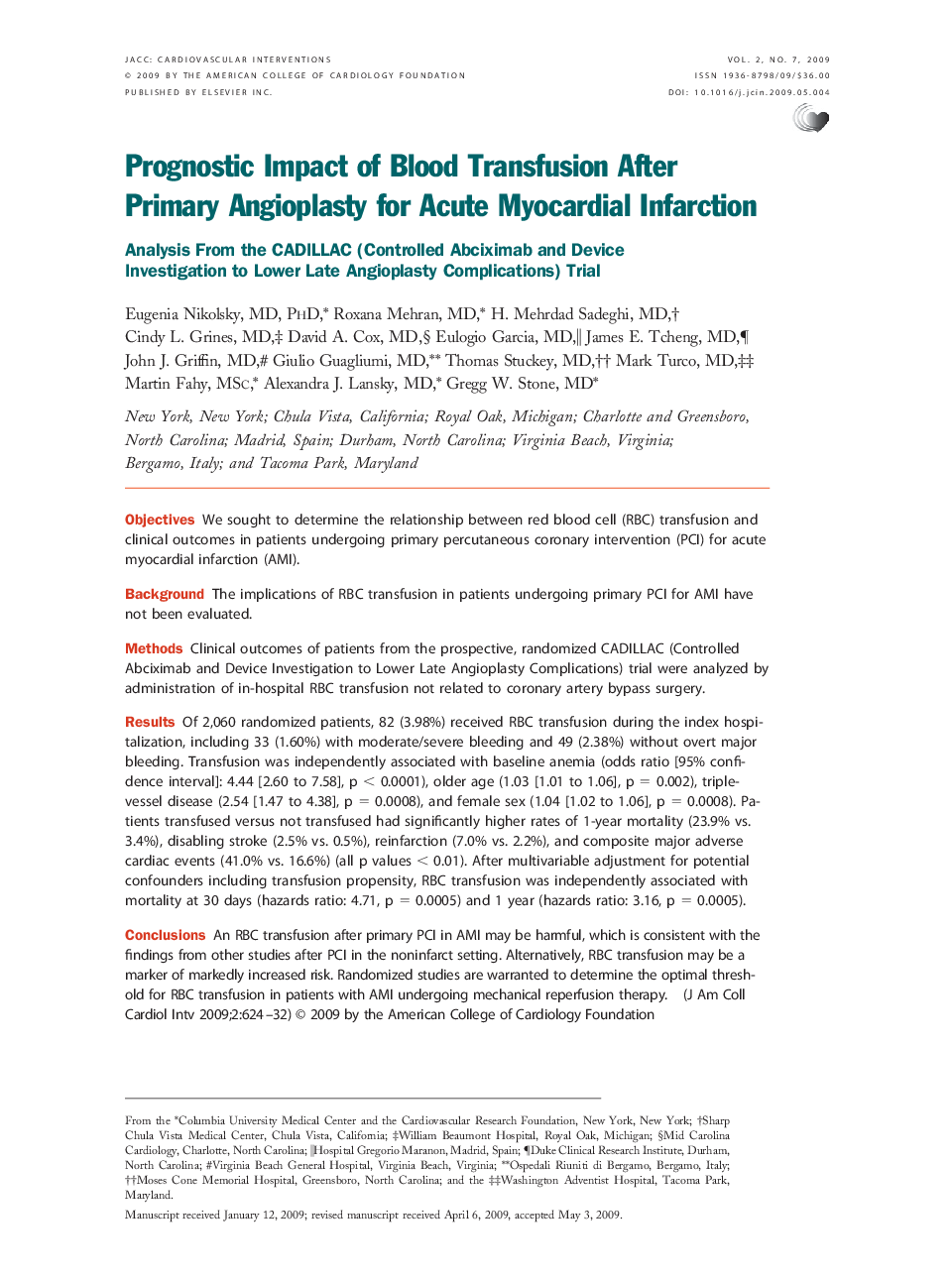| کد مقاله | کد نشریه | سال انتشار | مقاله انگلیسی | نسخه تمام متن |
|---|---|---|---|---|
| 2941444 | 1177071 | 2009 | 9 صفحه PDF | دانلود رایگان |

ObjectivesWe sought to determine the relationship between red blood cell (RBC) transfusion and clinical outcomes in patients undergoing primary percutaneous coronary intervention (PCI) for acute myocardial infarction (AMI).BackgroundThe implications of RBC transfusion in patients undergoing primary PCI for AMI have not been evaluated.MethodsClinical outcomes of patients from the prospective, randomized CADILLAC (Controlled Abciximab and Device Investigation to Lower Late Angioplasty Complications) trial were analyzed by administration of in-hospital RBC transfusion not related to coronary artery bypass surgery.ResultsOf 2,060 randomized patients, 82 (3.98%) received RBC transfusion during the index hospitalization, including 33 (1.60%) with moderate/severe bleeding and 49 (2.38%) without overt major bleeding. Transfusion was independently associated with baseline anemia (odds ratio [95% confidence interval]: 4.44 [2.60 to 7.58], p < 0.0001), older age (1.03 [1.01 to 1.06], p = 0.002), triple-vessel disease (2.54 [1.47 to 4.38], p = 0.0008), and female sex (1.04 [1.02 to 1.06], p = 0.0008). Patients transfused versus not transfused had significantly higher rates of 1-year mortality (23.9% vs. 3.4%), disabling stroke (2.5% vs. 0.5%), reinfarction (7.0% vs. 2.2%), and composite major adverse cardiac events (41.0% vs. 16.6%) (all p values < 0.01). After multivariable adjustment for potential confounders including transfusion propensity, RBC transfusion was independently associated with mortality at 30 days (hazards ratio: 4.71, p = 0.0005) and 1 year (hazards ratio: 3.16, p = 0.0005).ConclusionsAn RBC transfusion after primary PCI in AMI may be harmful, which is consistent with the findings from other studies after PCI in the noninfarct setting. Alternatively, RBC transfusion may be a marker of markedly increased risk. Randomized studies are warranted to determine the optimal threshold for RBC transfusion in patients with AMI undergoing mechanical reperfusion therapy.
Journal: JACC: Cardiovascular Interventions - Volume 2, Issue 7, July 2009, Pages 624–632